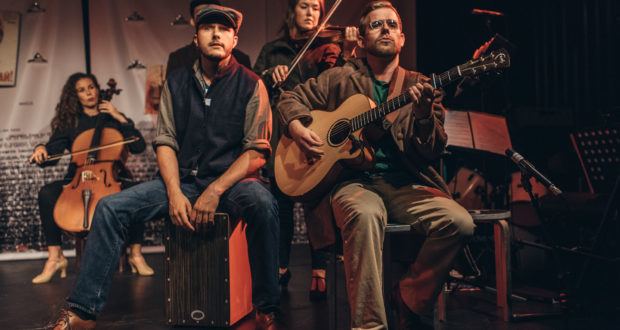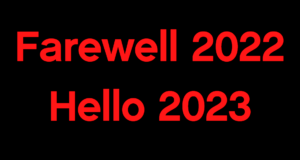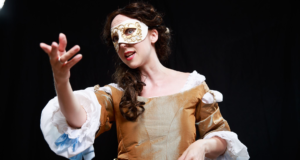After four years in the making, writer and composer Liam O’Rafferty’s debut musical Paper Hearts is making its way to London. O’Rafferty – a graphic designer from Swindon who got the theatre bug watching his wife perform with an amateur dramatic society – received rave reviews in Edinburgh last year for the work, which is directed by veteran Fringe director Tania Azevedo. Dubbed the ‘high-street musical’, Paper Hearts is set in a bookshop and intertwines the life of aspiring writer Atticus Smith with the romance of his novel’s main characters. Here, O’Rafferty talks about the challenges of writing an original score from scratch and his future projects.
Paper Hearts’ underlying message is that you must follow your heart to achieve your dreams. Is this an autobiographical message for you? How would you say you and protagonist Atticus Smith compare?
I often think that my path and Atticus’s are similar. When I was writing Paper Hearts my characters seemed as real to me as they are for him. I felt sorry for them when I wasn’t getting where I wanted to be and felt that their story deserved to be told. As with Atticus, I was worried that my work wasn’t good enough, so if it remained with me, then I would never be disappointed.
Paper Hearts received rave reviews when it was presented in Edinburgh as a single act, and is now coming to London as a full-length two-act performance. Why did you choose to continue expanding the piece, and how do you think it’s helped the show? Is this the final form, or would you like to continue developing the piece?
Our show at the Fringe was only 75 minutes and just wasn’t long enough to explore the characters and make them three-dimensional. I really want to tug on people’s heart strings and expanding the show will hopefully achieve this. It may need a bit of tinkering after the run in London, but I feel it will be pretty much there.
The musical score is a funk-pop mix of Russian folk, rock gospel, rhythm and blues and orchestrated pieces. What is the biggest challenge you faced whilst writing such a varied soundtrack?
Making sure that the music flowed and was balanced from one scene to the next was the biggest challenge. With so many varied styles, it was important it didn’t sound like a mess. Alex’s (Atticus’ materialistic girlfriend) theme is jazz, while Norman (the bookshop’s owner) has a 60s Kinks feel. Doing the Russian music was great fun. I did a lot of research into folk music of the period and fussed it with my own style. There is an underlying vibe throughout the musical that links everything together.
The action is set in a bookshop, which is endangered by a bigger company that wants to buy it and convert it in something more profitable. Does this location have a special meaning to you? Did you intend to send out a political message about the struggles of small independent businesses?
I’m not a political animal, but it does distress me when I see what is happening to the high-street bookshop. If highlighting their struggle helps in some way, then I will be very happy. I love bookshops, losing myself in them and finding new worlds. There is a place for them in every town and city. They are not just there to buy a book, they are a place to find peace of mind.
Your work didn’t receive any public financial support, but has benefitted from a crowdfunding campaign. Was this a personal choice or dictated by the circumstances? How do you think crowdfunding and other less traditional funding sources will influence the future of the arts in Britain?
It was a personal choice. Crowdfunding can be great if you get it right and don’t aim too high, otherwise your dreams can be destroyed. And, whilst it can be a way to provide funds otherwise unavailable, crowdfunding has also saturated the funding market, making it increasingly difficult to raise cash this way. I’m not sure what the way forward is, but I know that arts funding is just as difficult.
Director Tania Azevedo is known for her determination and willingness to experiment with new work. How did your collaboration come about, and how has her contribution helped in developing Paper Hearts?
Back in 2015, I was working with an actress who had been directed by Tania at the Edinburgh Fringe and she spoke very highly of her. One day I called Tania, thinking that she wouldn’t pick up, but she did and saw the potential of Paper Hearts immediately. We worked on the structure to get the most out of it and I went off and wrote the 75-minute show for the Fringe. I also had eight new songs to pen in the space of three months – it was a hard apprenticeship! Tania is a very gifted and passionate director, as is Dan Jarvis, my musical director. I owe a lot to both of them.
You started writing Paper Hearts without any academic knowledge or experience in theatre, and have since gradually earned more interest and visibility. Now that you are more familiar with the industry and the whole creative process, are you hoping to continue in theatre with any new projects?
I would like to, it’s great fun and you meet a lot of very interesting and talented people. I’m 52 and started very late in this process, writing from my bedroom. I didn’t know anyone in the theatre world, but I have worked very hard to get this far so I would love to carry on – funds permitting! It would be great to get a few more musicals under my belt.
Right after its London run, your show will make its debut abroad in Hamburg. What is your ultimate goal for Paper Hearts’ future?
When we were at the 2016 Fringe, we found ourselves mobbed by American teenage girls. It was crazy! People from all over the world really got Paper Hearts, so I think it has universal appeal. A world tour would be nice!
Paper Hearts will be at Upstairs at the Gatehouse from 2 May to 20 May. Tickets can be booked here.
 Everything Theatre Reviews, interviews and news for theatre lovers, London and beyond
Everything Theatre Reviews, interviews and news for theatre lovers, London and beyond



